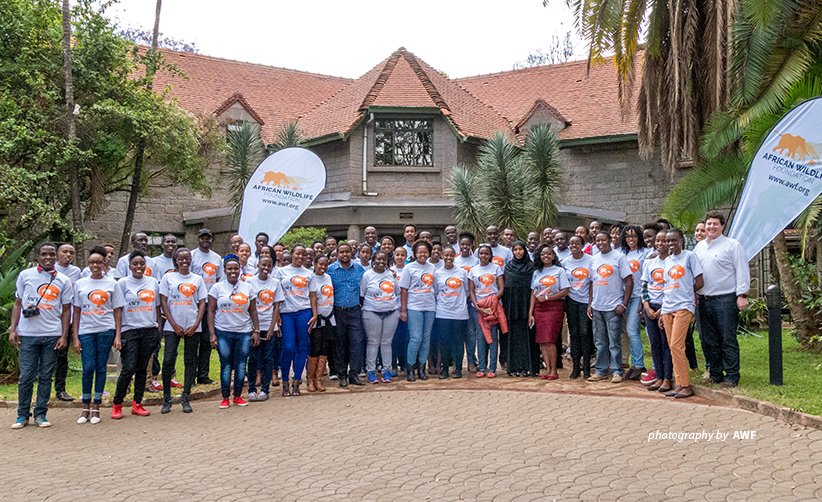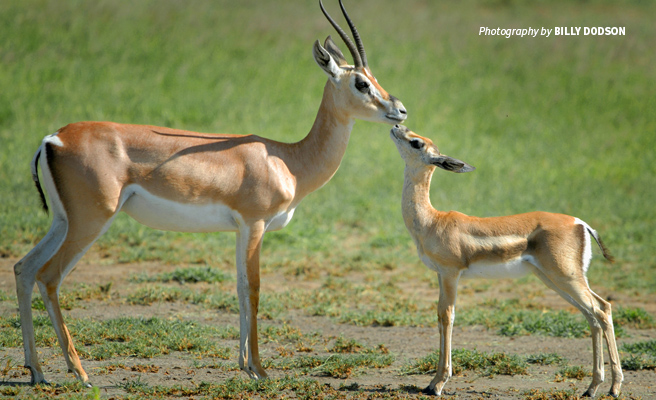Prioritizing African youth revitalizes conservation and sustainable development

Youth are the largest demographic on the African continent — more than 75 percent of the total population is under 35 years. The priorities and behaviors of Africans between age 18-35 must shape the way Africa develops as this group remains vulnerable to risks from sociopolitical instability and the ongoing climate crisis.
With unemployment being the greatest challenge among young Africans, sectors that provide opportunities for income generation largely attract this group. Telecommunications, information technology, agriculture, and education have long realized that youth can take the lead in developing sustainable and innovative solutions for Africa’s biggest inequalities including food insecurity, youth unemployment, as well as poor access to health and education.
Unfortunately, conservation, to date, has failed to realize and utilize the potential of youth in contributing innovative, forward-thinking solutions to address the complex challenges in the sector today. Rather, efforts to protect biodiversity and ecological assets have been perceived as a combative obstacle to Africa’s development because the conservation sector’s real impact and economic returns are undervalued. As Africa is on the move to achieve the African Union’s Agenda 2063, it is high time governments, the private sector, civil society, and local communities work together to position conservation as a strategic developmental avenue.
For AWF to achieve its mission of wildlife and wildlands thriving in modern Africa, we require a powerful young African conservation movement behind us. AWF aims to ensure that Africa’s youth value the role of biodiversity in their vision of a prosperous Africa, and empowers them to take leadership and ownership of the challenges they face through conservation solutions.

AWF's youth initiatives empower the next generation of leaders to protect Africa’s wildlife and wild lands
Supporting youth advocates for African and global conservation
AWF is partnering with young people for conservation-friendly innovation and entrepreneurship to fundamentally redefine the conservation-youth-private sector engagement space. We plan to pursue three main components: Conservation Enterprise Hub, Conservation Institution Network, and Youth Conservation Dialogues. Over the next few years, these programs will provide youth from across the continent with the necessary knowledge and skills to drive Africa’s conservation agenda forward today and in the near future.
Our initiatives are already shifting the paradigm of youth and development. Since 2017, AWF has invested in building a strong youth engagement foundation. AWF emboldens young conservation heroes in biodiversity-rich landscapes and in pan-African development agendas to lead change from policy to practice. This takes various forms, from advocating for youth in global, regional, and national policy and decision-making processes to supporting young entrepreneurs and our field staff.
So far, we have convened nearly 300 young Africans in platforms that promote peer-to-peer knowledge sharing, learning, and capacity building. AWF supported and hosted the Global Youth Biodiversity Network Africa region workshop in 2018 ahead of the 14th Convention of Biological Diversity Conference of the Parties in Egypt to ensure they were part of formulating the Post-2020 Global Biodiversity Framework. The network is the official youth group recognized by the Convention of Biological Diversity secretariat and represents the interests of young people committed to stemming the threats against biodiversity.
AWF was also successful in bringing biodiversity conservation into the African Youth Commission agenda during their second annual general assembly in Zimbabwe in 2018. AWF is an active member of the United Nations Environment Assembly, providing technical support in negotiations to stakeholders including youth. The most recent Africa youth summit held at AWF led to the development of a youth declaration on nature. Based on previous successes, AWF plans to roll out a youth engagement program in July 2019 that will provide tangible conservation-friendly solutions for the day-to-day challenges facing African youth. By mobilizing this demographic to take ownership of the biodiversity crisis, we are empowering the next generation of leaders and equipping custodians of Africa’s wildlife and wild lands.
> Learn how AWF helps young people across the African continent stand up for biodiversity protection
